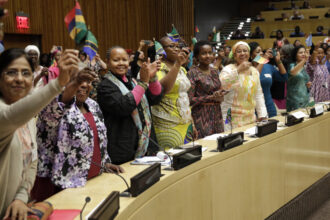- The Illusion of Justice in Renewable Energy Transition
- The Neo-Colonial Dynamics in Energy Transition
- What Does Green Colonialism Signify?
- Exploitative Energy Projects and Neo-Colonialism in North Africa
- Contradictions in Western Environmental Policies and the Reality of Energy Colonialism
- Geopolitical Shifts and Environmental Impacts in the Wake of the Ukraine War
- The Concept of a Just Transition: Rethinking Economic and Environmental Policies
- Addressing Ecological Debt and Technological Disparities for a Global Energy Transition
Green Colonialism, what does it mean? Is there such a term? In order to get a grip on the climate crisis, it is unavoidable to rely on a massive expansion of renewable energies. However, the large-scale projects in northern Africa are robbing the local population of land and resources in order to secure the imperial lifestyle in Europe.
The reality of climate collapse in North Africa and the Arab region is already unmistakable, particularly in view of the increasing erosion of ecological and socio-ecological livelihoods. Countries such as Algeria, Tunisia, Morocco and Egypt are repeatedly hit by severe heatwaves and prolonged droughts, with catastrophic effects on agriculture and small farmers. In the summer of 2021, Algeria was hit by unprecedentedly devastating forest fires; Tunisia experienced a stifling heatwave with temperatures of almost 50 degrees Celsius; southern Morocco battled a severe drought for the third year in a row; in south-eastern Egypt, over a thousand people lost their homes to flooding and hundreds of people were injured by scorpions that had crawled out of the ground due to the extreme weather conditions. The Intergovernmental Panel on Climate Change (IPSS) assumes that extreme weather events such as forest fires and floods in the Mediterranean region will increase in the coming years, as will droughts and dry spells.
Read Full Article. View All News. Subscribe Today!
Enjoy 3 Days Free Trial Cancel anytime.
















